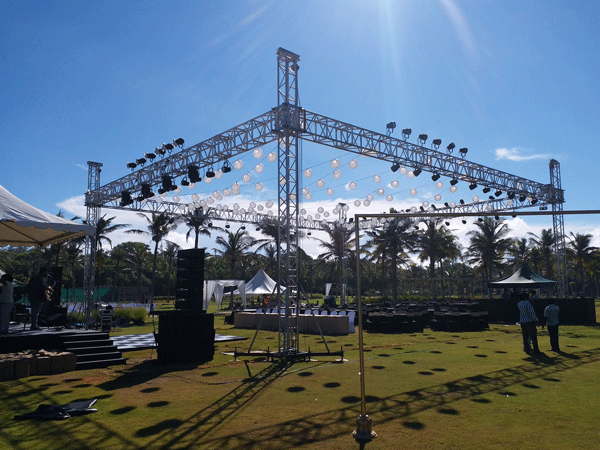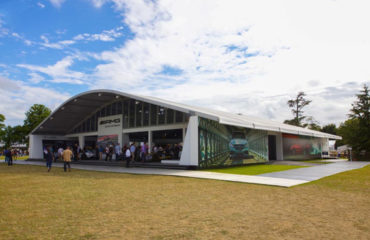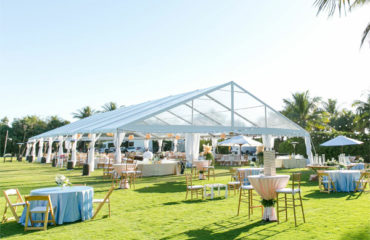Enough rigidity — without excessive elastic deformation;
Sufficient stability – no collapse due to sudden changes in the form of equilibrium;
Aluminum alloy truss strong enough — no fracture or plastic deformation;
The product also has good dynamic characteristics – seismic and wind resistance;
Aluminum truss design requirements: to meet the requirements of the rod; Have good connections, including rivets, pins and weld joints.
Aluminum alloy truss display—planar or spatial structure consisting of straight bars, usually with triangular elements.
Under loads, the truss rods mainly bear axial tension or stress, which can make full use of the strength of the material, the span is larger than the plain girder to save material, reduce weight and increase the stiffness of the bearing structure of reason is suitable for large span and tall structures, such as roof, bridge, transmission line tower, satellite towers, gate, crane frame, etc.
Commonly used are steel trusses, reinforced concrete trusses, prestressed concrete trusses, wood trusses, steel and wood trusses, steel and concrete trusses.
The aluminum truss display are divided into triangular trusses, trapezoid trusses, polygon trusses, parallel string trusses and vierendeel trusses. In the selection of truss form, the use of the truss, materials, support and construction conditions should be considered comprehensively. On the premise of meeting the requirements of use, the material and labor used in manufacturing and installation should be minimized.


 中文
中文 English
English

